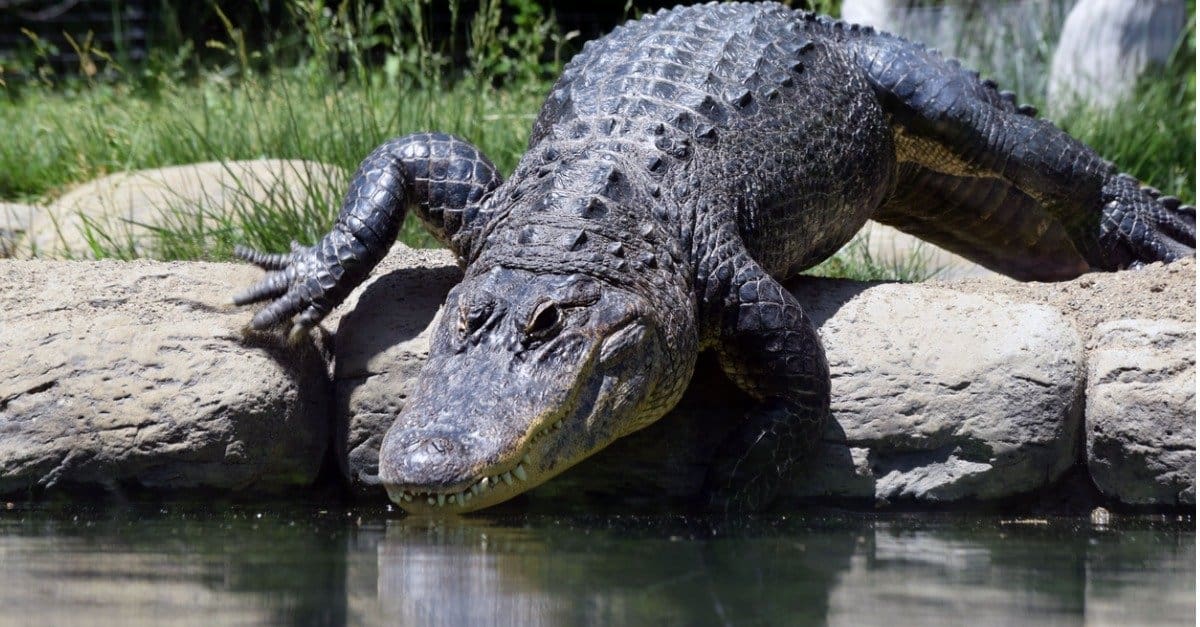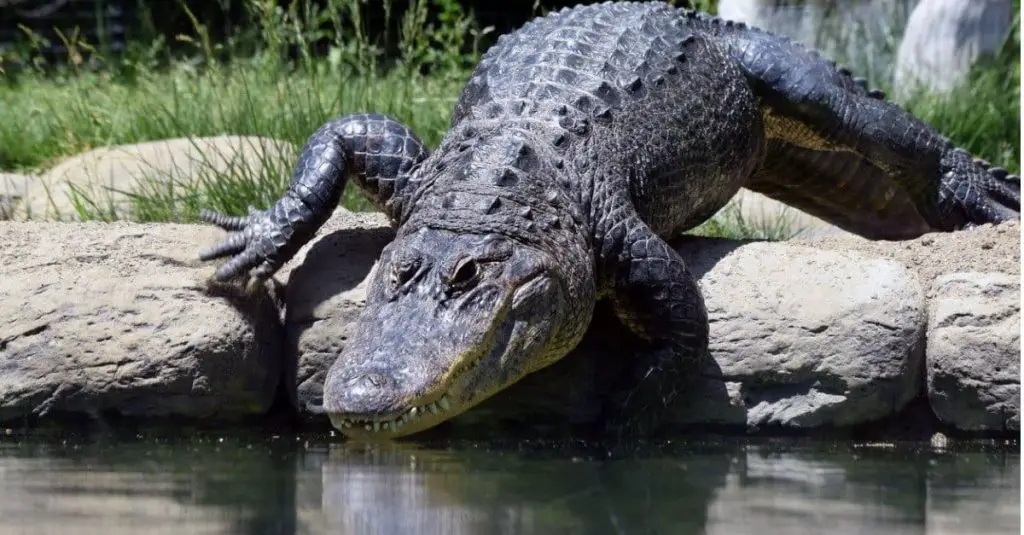Alligators are fascinating creatures that have captured the imagination of people for centuries. They are often associated with swamps and marshes, but did you know that they spend a considerable amount of time underwater? In fact, they are quite adept at holding their breath and can remain submerged for quite some time. So, just how long can an alligator stay underwater? Let’s dive in and find out!
The answer to this question might surprise you. While alligators are not known for their speed or agility on land, they are incredibly agile and efficient in the water. An adult alligator can hold its breath for up to two hours, allowing it to stealthily move through the water and ambush prey. So, if you ever find yourself in the presence of an alligator, remember to keep a safe distance and never underestimate their abilities underwater.
Alligators can stay underwater for long periods of time, up to two hours without coming up for air. Their ability to hold their breath for extended periods is due to their specialized lungs and circulatory system, which allows them to conserve oxygen and slow down their heart rate while underwater.

How Long Can an Alligator Stay Underwater?
Alligators are one of the most fascinating creatures on earth. They are known for their huge size and their ability to stay underwater for a long time. In this article, we will explore how long can an alligator stay underwater and what makes them so good at it.
Adaptations for Underwater Living
Alligators are well adapted to living in water. Their body structure and physiology allow them to stay underwater for long periods. Their nostrils and ears have valves that close when they dive, which prevents water from entering. They also have a special set of lungs that allow them to store air for long periods while diving.
Alligators are also able to slow down their heart rate while underwater. This reduces their oxygen consumption and allows them to stay underwater for longer periods. Additionally, their eyes have a special membrane that protects them while underwater, allowing them to see in low light conditions.
Length of Time Underwater
Alligators are capable of staying underwater for up to two hours at a time. However, this time can vary depending on a number of factors. For example, if an alligator is active and moving around, it will use up more oxygen and need to resurface sooner. Similarly, if the water is cold or murky, it can make it more difficult for an alligator to spot prey and may cause them to resurface more frequently.
It’s also important to note that alligators do not need to stay underwater for long periods to survive. They are able to come up for air and then dive back down again, which allows them to hunt and navigate in their underwater environment.
Benefits of Staying Underwater
Being able to stay underwater for long periods provides several benefits for alligators. For one, it allows them to stay hidden from predators and ambush prey. Alligators are skilled hunters and can silently sneak up on prey while underwater.
Staying underwater also helps alligators regulate their body temperature. They can submerge themselves in cool water during hot weather to lower their body temperature. Similarly, they can dive into warmer water during cooler weather to warm up.
Alligator vs Crocodile
Alligators and crocodiles are often mistaken for each other, but there are several differences between them. One of the most notable differences is their snouts. Alligators have a wide, rounded snout, while crocodiles have a longer, more pointed snout. This difference in snout shape affects their ability to hunt and eat different types of prey.
Another difference between alligators and crocodiles is their habitat. Alligators are found in freshwater habitats, such as rivers, lakes, and swamps. Crocodiles, on the other hand, are found in both freshwater and saltwater habitats, such as rivers, lakes, and coastal areas.
Alligator Conservation
Alligators were once hunted to near extinction for their skin and meat. Today, however, alligator populations have rebounded thanks to conservation efforts. In the United States, alligators are protected by law and can only be hunted during specific seasons and with a permit.
Conservation efforts have also focused on preserving alligator habitats. Wetlands and other freshwater habitats are crucial for alligator survival, and efforts have been made to protect and restore these habitats.
Conclusion
Alligators are fascinating creatures that are well adapted to living in water. Their ability to stay underwater for long periods is just one of the many adaptations that make them so unique. By understanding how alligators live and thrive in their environment, we can better appreciate and protect them for future generations.
Frequently Asked Questions
Here are some common questions about alligators and their behavior.
What is the average length of an alligator?
The average length of an alligator is about 10 to 15 feet long, with males being larger than females. However, some alligators have been known to grow up to 20 feet long, making them one of the largest reptiles in the world.
Alligators are also known for their powerful jaws, which can exert a force of up to 2,000 pounds per square inch. This allows them to easily catch and eat their prey, which can include fish, birds, and mammals.
How fast can an alligator run on land?
Despite their large size, alligators are surprisingly fast on land. They can run up to 11 miles per hour in short bursts, which is faster than the average human can run. However, they are not built for endurance and cannot run for long distances without getting tired.
Alligators are more comfortable in the water, where they can swim at speeds of up to 20 miles per hour. They are excellent swimmers and can hold their breath for long periods of time while underwater.
What is the lifespan of an alligator?
Alligators are known for their long lifespans, with some individuals living to be over 60 years old. However, the average lifespan of an alligator is around 30 to 35 years in the wild. In captivity, they can live even longer if they are well-cared for and have access to proper nutrition and medical care.
Alligators are slow-growing animals, which means they take a long time to reach maturity. It can take up to 10 years for a male alligator to become sexually mature, and up to 20 years for a female.
How long can an alligator stay underwater?
Alligators are well-adapted to life in the water, and can stay underwater for up to 1 hour without needing to come up for air. They have a special valve in their throat that allows them to close off their airway while they are submerged, which helps them conserve oxygen and stay underwater for longer periods of time.
In addition to their valve, alligators also have a highly efficient circulatory system that allows them to tolerate low oxygen levels. This means they can remain active and alert while underwater, even when the oxygen levels are low.
Do alligators hibernate during the winter?
While some animals hibernate during the winter, alligators do not. Instead, they enter a state of torpor, which is similar to hibernation but not as deep. During this time, their metabolism slows down and they become less active, but they are still able to move around and hunt for food if necessary.
Alligators are cold-blooded animals, which means their body temperature is regulated by the environment around them. During the winter, they seek out warmer areas such as deep pools or sunny banks to help regulate their body temperature.
How Long Can An Alligator Stay Underwater? #shorts
In conclusion, the ability of alligators to stay submerged underwater is truly remarkable. These creatures have developed unique adaptations that enable them to stay underwater for extended periods of time, allowing them to hunt and evade predators with ease.
While the exact duration of an alligator’s dive may vary depending on various factors such as water temperature and oxygen levels, these reptiles can typically stay underwater for up to 30 minutes without surfacing for air.
Overall, it’s clear that alligators are incredibly skilled swimmers and have evolved to survive in aquatic environments. Their remarkable ability to stay underwater for extended periods of time is just one of the many adaptations that make them such fascinating creatures to study and observe.


